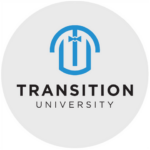
Disability Advocacy: Give a Voice
Disability advocacy gives a voice for those advocating for inclusivity and equality for ourselves and our loved ones with a disability. In Utah, advocacy plays a pivotal role in shaping policies, fostering understanding, and creating a society that embraces the strengths and contributions of every individual. In addition to the Utah Parent Center’s Advocacy page, here are a few other ideas.
Empowering Voices
If you have a disability yourself, self-advocacy is not always easy. It can be difficult at times. It takes time, knowledge, and practice. An important part of self-advocacy is learning to be comfortable talking about your disability. Disclosing or learning to talk about your disability helps others understand your situation and needed accommodations at work, school, and in the community. If you are uncomfortable, you can practice telling your story to your family and friends until you are more comfortable sharing it with others. Self-advocacy is learning to:
- Speak up and express your needs and wants
- Ask for help when you need it
- Make your own decisions
- Know your rights and responsibilities
Advocacy for our loved ones is crucial. As a family member, you have important and valuable experiences, and people need to hear your story. We can also help our loved ones communicate their lived experiences. If verbal communication is difficult or not possible. Find the method that works best for you.
- Email/Social Media
- Business Cards
- Videos
- Posters/Pictures
- Communication Aides
Policy Influence
Disability advocates in Utah are instrumental in influencing policies that directly affect the disability community. Whether it’s advocating for accessible infrastructure, inclusive education, funding for disability services, or workplace accommodations, your efforts contribute to the creation of an environment where everyone can thrive.
Advocacy promotes education and awareness by fostering an understanding and empathetic community. Disability advocates strive to dispel myths, eliminate stigma, and promote a culture of acceptance and support through workshops, campaigns, and community events.
Advocacy involves researching topics and using your voice to speak out for or against legislation that impacts the disability community. In the upcoming 2024 Utah legislative session, we anticipate the topics below will be discussed. Reach out to the Utah Parent Center, the Utah Developmental Disabilities Council, or the Disability Law Center if you need more information on these topics. Governor Cox’s proposed budget includes:
- Additional funding for approximately 272 individuals on the waiting list as well as an allocation for Caregiver Compensation.
- A rate increase for Home and Community Based Waiver care rates and providers in response to the increased cost of providing care. This would specifically benefit those on the Aging and New Choices Medicaid waivers.
Also, the following new legislation is being presented:
- Supported Decision-Making legislation that would provide a recognized legal alternative to guardianship for those who may not need a guardian.






